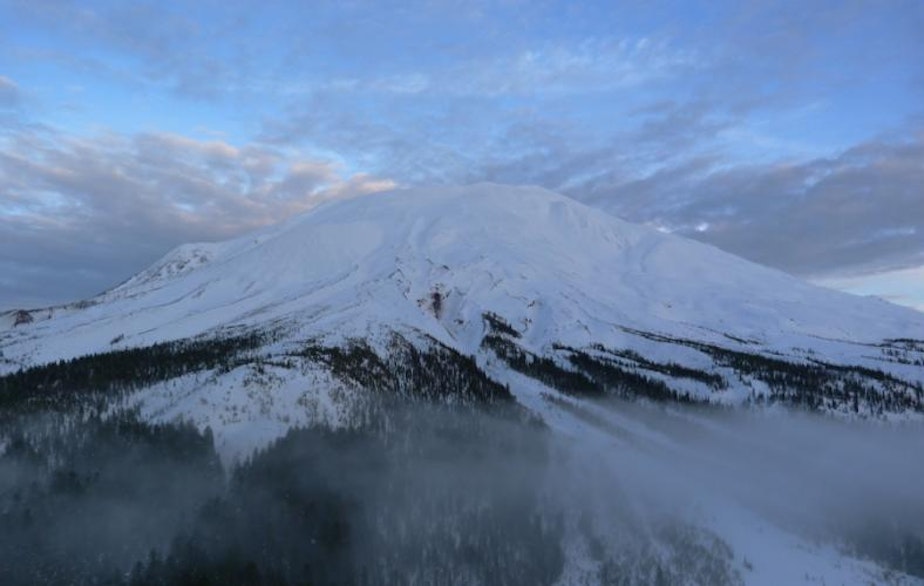Mount St. Helens volcano rated 'normal' but could be recharging

While Hawaii's Big Island braces for another potential volcano eruption in the coming weeks, volcanoes in the Cascades are rated "normal," meaning the likelihood of hazards is low. The most activity we see from those mountains right now is small earthquakes, said Seth Moran at the USGS Cascades Volcano Observatory.
"Mount Saint Helens is the most seismically active volcano that we have, and we see a couple earthquakes a day — maybe hundreds a day — but we've kind of come to know that that's normal," Moran said.
Read: The day Seattle Nice died
But he also said the Mount Saint Helens earthquakes seem to be caused by magmatic stress, and that means lava could be building.
"So we think that there's a pretty good chance the system is repressurizing a little bit and kind of getting itself ready for the next eruption, which could be years, decades down the road," Moran said.
Mount Saint Helens is considered the most hazardous of ten volcanoes in the Northwest, with an eruption once or twice a century. Moran said USGS and Pierce County officials are working to improve the volcano and lahar warning system.
Read: Developers are building affordable housing in Seattle – very, very slowly
The Cascades Volcano Observatory recognizes May as Volcano Preparedness Month.

